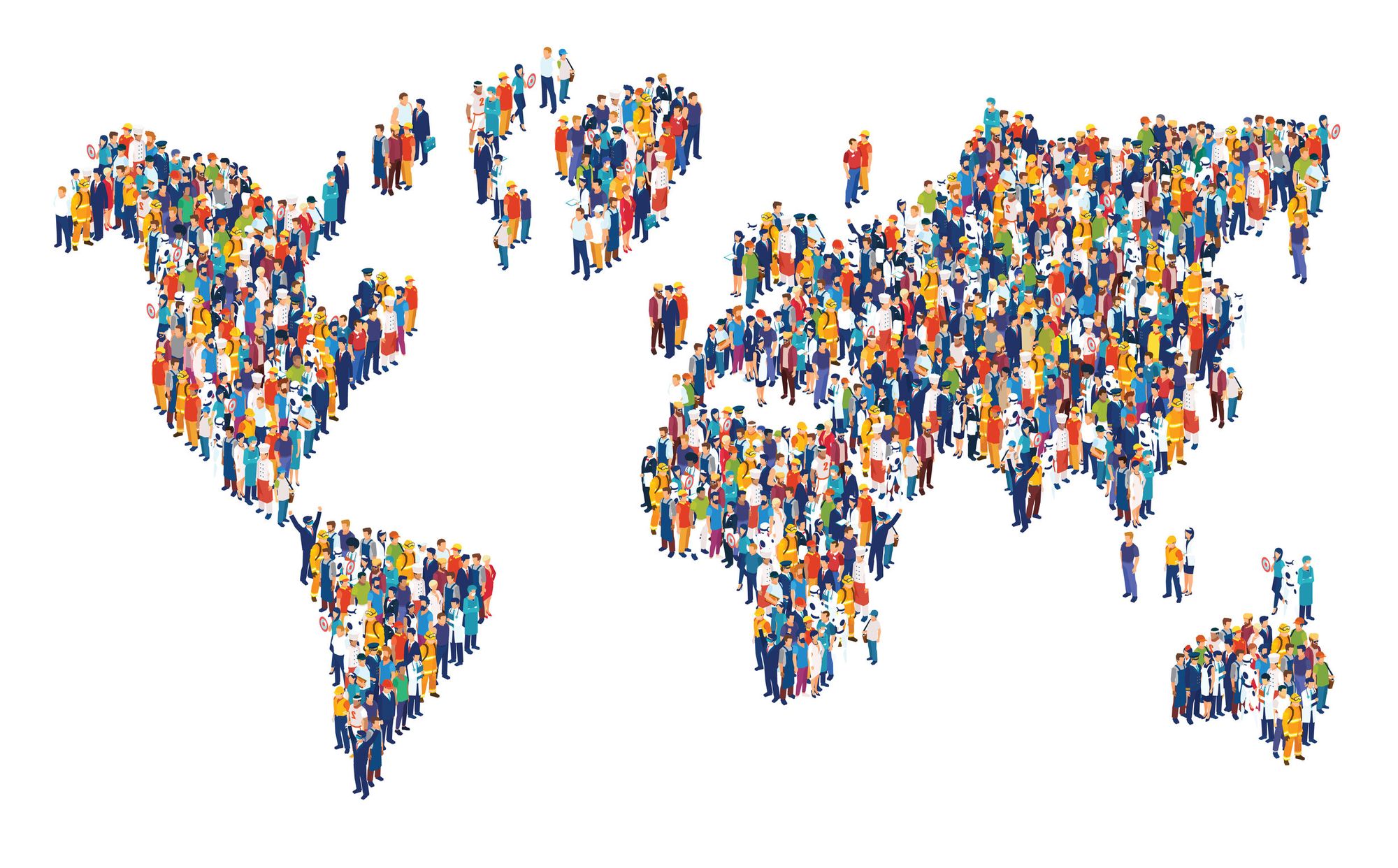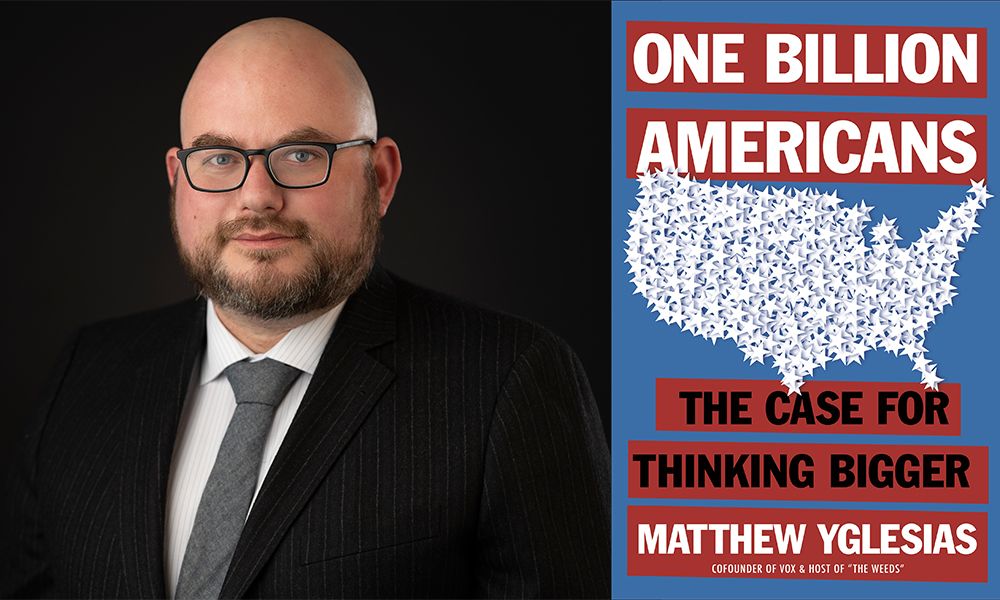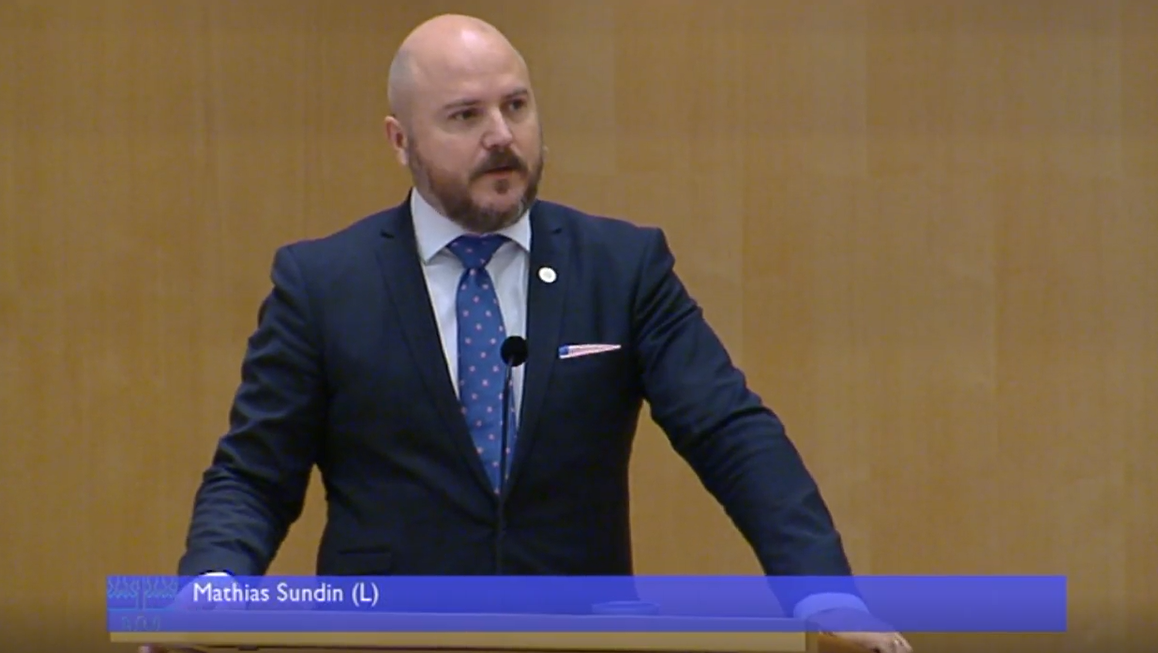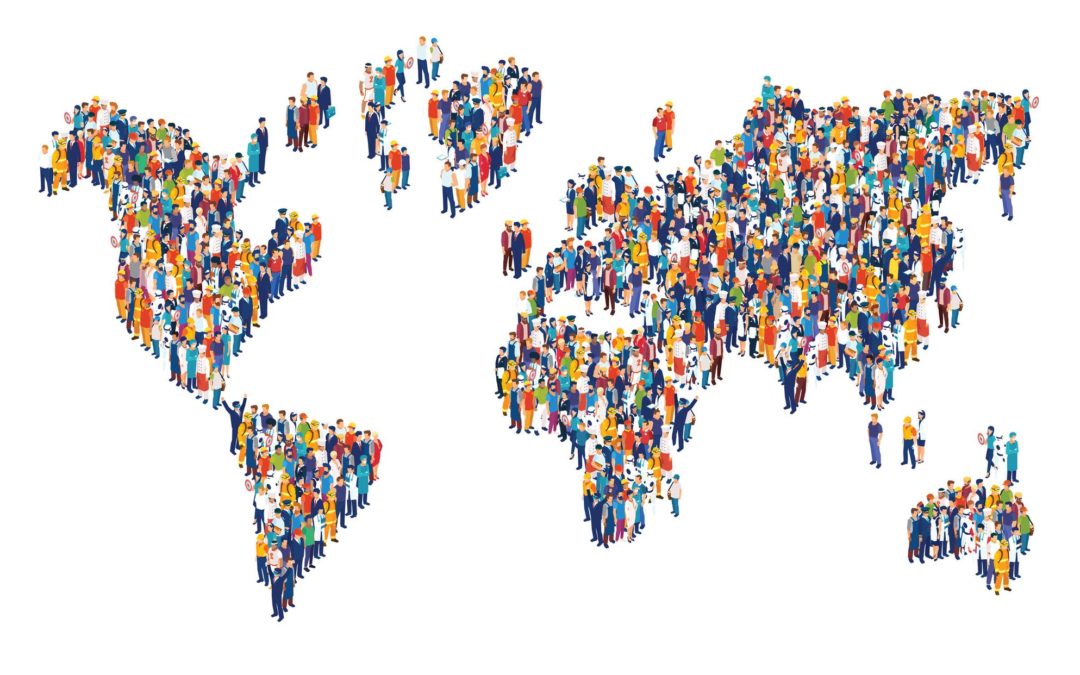One Billion Americans

Matthew Yglesias is one of the founders of Vox, a left-of-center news site. He is out with a new book, One Billion Americans: The Case for Thinking Bigger. The inspiration for the book Yglesias found north of the border, Maximum Canada: Why 35 Million Canadians Are Not Enough by Doug Sanders.

Immigration is a hot topic in the U.S. as it is in my native Sweden and many other countries. I’m not going to make a case for one billion Americans or a hundred million Canadians, but for thinking bigger.
Disagreement and debate are vital in a free society. But it’s also useful at times to have common goals—settle the West, beat the Nazis, win the Cold War—that structure the disagreements.
And now the country faces a very real challenge that we must meet: rapid ongoing economic growth in India and especially China is leading to the relative decline of the United States of America as a great power and threatens its position as the world’s number one state in the not-too-distant future.
Contemporary American politicians give no sign of wanting to accept that decline, but they’re also not proposing to do anything about it.
What about the future?
Here, Yglesias is spot on. The solution doesn’t have to be one billion Americans, but something big. Something that is being proposed or part of the debate.
This was also a growing critique I had during my years in politics.
In 2017 I was my party’s representative in the finance committee in the Swedish Parliament, and just before the summer break a decision was taken on the budget. A sort of mid-year correction of the $100 billion budget. Before the decision there is a debate in the chamber of the Parliament.
I recently went back and checked what I said, because this was just a few weeks after I had decided to not run for reelection and instead build an organization I just had started, the Warp Institute.

Mr. Speaker, I would like to talk about something that is far too little talked about in Swedish politics, namely the future. … We have a very short-sighted political debate in this country. I think this is dangerous, because we are missing opportunities. There are greater opportunities today than ever before for us as a country and for individual Swedes.
Estonia – the startup country
I think countries should have aspirations, like Sweden’s neighbor Estonia. They often describe themselves as a startup, and is the first country to offer e-Residency. This government-issued digital identity allows digital entrepreneurs to manage their business from anywhere in the world, entirely online.

Are countries the best way to reach common goals?
But what I had started to realize then was that countries are not necessarily the best way to work towards common goals. There are other, even better ways, like global communities.
Thanks to the internet we can now find like-minded people all over the world. People that share our interests and passions. That could be a narrow interest, like the carpet of the Portland airport. The internet has made this ugly(?) carpet famous. It has a Facebook page with 12,000 people in it. Several companies have started selling carpet merchandise, like this t-shirt.

And these wonderful socks.

This is mostly humor, but fat chance of this carpet getting famous and creating a community before the internet.
Not so lonely planet
I listened to a talk on Swedish radio by the genius Nick Bostrom, author of Superintelligence. He grew up in an industrial town in the south of Sweden (then Niklas Boström). Bostrom felt lonely, no one shared his interests, like in the books on the German philosophers he found in the library. But when the internet arrived he realized thousands of people out there shared his interests and became active in the global transhumanist movement.
On a global scale even narrow interests could add up to many millions of people. Professor Erica Chenoweth has shown you only need 3.5 percent of the people to join a movement, to make drastic change possible.
217 million optimists
Today the global population is 7.832 billion people. 3.5 percent of that is 217 million. If we gather 217 million fact-based optimists in one community, with the common goal of making the future come sooner – imagine the impact!
Since we know optimists have more ideas and are more open to ideas from others this community will be the most creative place anywhere, anytime.
Optimists are more likely to do something with the ideas, so the community will be a beehive of activity, like no other before.
When you have 200+ million people to test ideas on and launch products and services to, the best ideas’ progress will be super fast.
Organizing that many people is a huge and complicated task, but the shared direction makes it easier. You can make decisions using straight up voting or blockchain token-based solutions. Everyone in the community also votes with their feet, joining projects they feel inspired by.
Global communities with global impact
I don’t think countries are going away anytime soon, and there are many positive aspects to having countries. But global communities are going to take a larger role in the coming years.
When someone manages to create a vast international community with hundreds of millions of people, similar to what I described here, the impact will be enormous.
We can all benefit from thinking bigger. The opportunities for impact are so much greater now than just a couple of decades ago.





